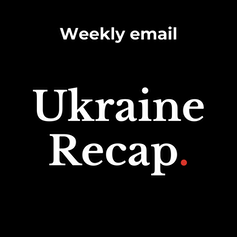Vladimir Putin’s imperial ambitions in Ukraine, dressed up for domestic consumption as a “military operation” to “de-Nazify” the country, have sent a shiver of apprehension through the rest of the region. In Moldova, particularly, where the small breakaway enclave of Transnistria gives Russia a foothold, many fear their country could well be “stage two” of Russia’s expansion plans.
But it doesn’t stop there. Since Russian troops crossed into Ukraine in February, neighbouring countries which were once part of the Soviet bloc have cause to be concerned about where Putin may stop. And various statements from Russian legislators are doing nothing to allay those fears.
In May, Oleg Morozov, a member of the Russian parliament and a Putin ally declared that Poland should be “in first place in the queue for denazification after Ukraine”. Morotzov’s chilling statement came just days after another Russian polician, Moscow city assembly member Sergey Savostyanov, asserted that after Ukraine, Russia needs to drive alleged Nazis from power in six more countries: Estonia, Latvia, Lithuania, Poland, Moldova and Kazakhstan.
Juris Pupcenoks, a political scientists from Marist College in Poughkeepsie, New York, writes that the Nazi epithet is commonly wielded against Russia’s enemies because of the special resonance the terms has had since the horrors of the second world war. But the label has also been used multiple times as a threat against Latvia and Estonia, two countries with sizeable Russian-speaking populations and membership in the European Union and Nato. Could this be laying the groundwork for other wars beyond Ukraine?
Read more:
Decrying Nazism – even when it’s not there – has been Russia’s ‘Invade country for free’ card
Other former Soviet republics are also feeling the threat from Moscow and are looking to shore up their position by seeking influential friends and allies. The more west-leaning countries such as Ukraine, Moldova, Georgia, Latvia, Lithuania and Estonia, are increasingly looking to institutions such as Nato and the EU for support.
Former Soviet satellites in central Asia, meanwhile, are looking to Beijing. Christoph Bluth, a professor of international relations from Bradford University, reports on the new alignments that could redraw the political map of eastern Europe.
Read more:
Russia’s neighbours are looking towards the EU or China for protection
This is our weekly recap of expert analysis of the Ukraine conflict.
The Conversation, a not-for-profit newsgroup, works with a wide range of academics across its global network to produce evidence-based analysis. Get these recaps in your inbox every Thursday. Subscribe here.
China rising
As well as increasing its influence in central Asia, China and its military planners are surely keeping a close eye on Russia’s progress in Ukraine. Xi Jinping, a leader with his own imperial ambitions, has spoken many times in recent years about reunification with Taiwan, which – not unlike Putin’s view of Ukraine – Beijing has always seen as inseparable from China. But other countries in the region: notably Japan and South Korea, also have reason to be apprehensive of Chinese ambitions.
Robert Dover, a professor of intelligence and national security at the University of Hull, believes that China – which is not having to bear any of the heavy cost of assisting Ukrainian resistance to the Russian invasion – could emerge as the biggest winner from this conflict.
Read more:
Ukraine conflict: how China could follow Russia’s playbook to increase its own powers
Beijing’s increasing clout could be clearly seen at the recent meeting of the G20 in Bali, Indonesia, which bought together foreign ministers from Russia, China and leading western democracies for the first time since the invasion in February.
As well as having a one-on-one with Russia’s Sergey Lavrov on the eve of the summit, the Chinese foreign minister, Wang Yi, took the opportunity to meet with a number of other foreign ministers including those of Germany, India and Australia. Stefan Wolff, an expert in international relations and security from the University of Birmingham, sees the emergence of a new bipolar international order, dominated by the US and China.
Read more:
Ukraine war: Russia’s G20 walkout heightens tensions at fractious summit as China’s rise continues
Ukraine’s endangered heritage
Part of Putin’s pre-invasion strategy involved attempting to deny Ukraine’s history, claiming the country to be “an inalienable part of our own history, culture, and spiritual space”. Of course, Ukraine’s rich cultural heritage gives the lie to Putin’s claims, the country’s streets being filled with monuments and statues to the cuntry’s past and its museums and galleries full of important works that tell the story of Ukraine’s identity.
Fears for the safety of these artefacts are not unfounded. The destruction of heritage is all-too often a byproduct of war. See for example the blowing up of the Buddhas of Bamiyan in Afghanistan by the Taliban back in 2001, the looting of Baghdad’s National Museum of Iraq in 2003 or the 2015 demolition of the Temple of Bel in Palmyra, Syria.
An international coalition of scholars and archivists are painstakingly digitising Ukraine’s most important cultural artefacts to protect this heritage. But American scholar, Aaron Mauro, who specialises in digital media, warns that given Russia’s expertise in hacking and cyberwarfare, says even this digital backup will need to be kept secure if the world is to safeguard Ukraine’s rich cultural history.
Read more:
Ukrainian cultural artifacts are at risk during the Russian invasion, but digitizing them may offer some protection
Before we close, you’ll have noticed that this week’s Recap has appeared on Friday rather than Thursday as usual. This is because The Conversation held a staff training day this week. We’ll be back to normal next week.
Ukraine Recap is available as a weekly email newsletter. Click here to get our recaps directly in your inbox.
![]()











